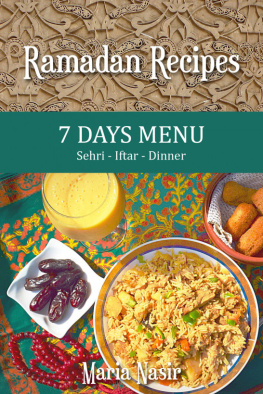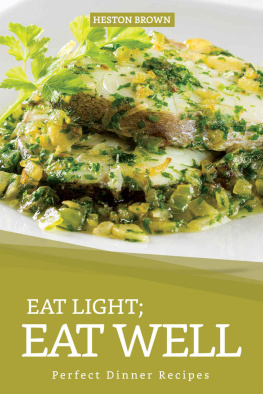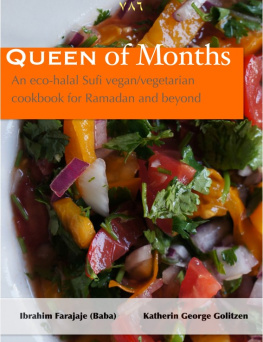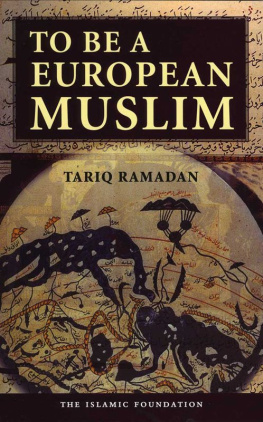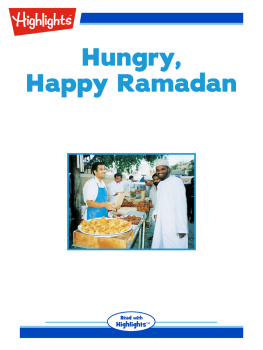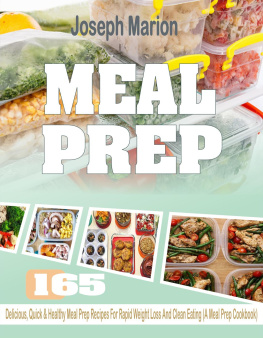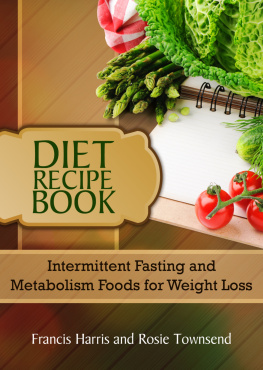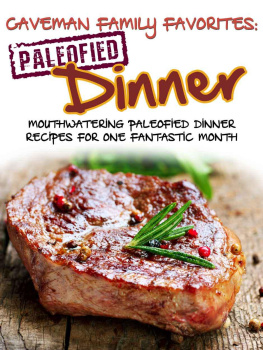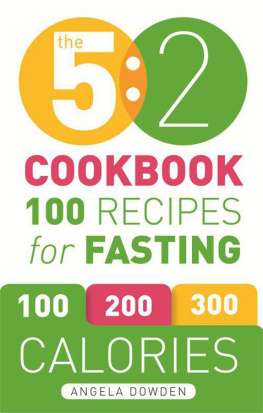Table ofContents
"RamadanRecipes: 7 Days Menu." by Maria Nasir
www.foodaholic.biz
Copyright 2015by Maria Nasir
All rightsreserved. This book or any portion thereof may not be reproduced orused in any manner whatsoever without the express writtenpermission of the author except for the use of brief quotations ina book review.
Cover, interiordesign, editing, publishing: Gill Andrews
www.gillandrews.com
First edition:June 2015
Introduction
"Fast and you will be healthy."
- al-Tibbun al-Nabawee,narrated by Abu Naeem
I have alwayslooked forward to the month of Ramadan as the time that breaks themonotony of routine, the time that encourages and brings aboutpositive change in lifestyle.
Just like springcleaning, Muslim families give a thorough cleaning to their homesto welcome the holy month of fasting with reverence. I remember mymom changing the bedding, cleaning the cobwebs, decluttering thepantry and fridge before the arrival of Ramadan. One could simplysense something good was about to happen!
I continue hertradition with the same happy glow in my heart. But it's not onlyour homes that we need to prepare beforehand. Ramadan asks for thecleaning of mind and body as well. It's the time of caring,sharing, sacrifice, and self-training with the hope that thesequalities will extend beyond this month.
Excessive eatingis abhorred in Islam. Prophet Mohammad (pbuh) always encouragedeating simple food and sharing it with others.
"[...] It should beenough for the son of Adam to have a few bites to satisfy hishunger. If he wishes more, it should be: One-third for his food,one-third for his liquids, and one- third for his breath."
- Tirmidhi and IbnMajah.
But contrary tothe spirit of this month, it has become a norm to be greedier andover-indulgent towards food.
Lavish andextended Iftar dinner parties and deep fried, heavy and calorieloaded food buffets at restaurants are the complete negation of thepurpose of fasting, especially when so many people in the worldcontinue to starve.
How FastingAffects Your Body
If youve never fastedbefore, you might think of it as something extreme and very hard todo. However, after the first couple of days your body will adjustto the new routine and kick off many processes that are beneficialfor your health.
Technically, thebody enters into the fasting mode almost eight to twelve hoursafter the last meal, when all the nutrients from the last meal areabsorbed by the stomach. To produce energy, the body first uses thecarbohydrates and then fats stored in it. Only if you havent eatenfor many days straight will the body begin to use the protein,entering so called starvation stage.
Since the Ramadanfast lasts only from dawn till dusk, there is no danger ofstarvation or breakdown of muscles for using protein as a source ofenergy. In fact, fasting helps the body get in the habit of usingup the fat stores to produce energy, which gradually results inhealthy weight loss, reduced cholesterol level and controlled highblood pressure.
Another wonderfulthing that naturally happens to the body during fasting isdetoxification - cleansing of the body from the harmful elementsstored in the fat reservoirs. As the fat is used up, the toxins getdissolved and melt away with it too, leaving the body ready tobegin its healing and restoration process.
During fasting,the body continuously diverts energy from digestive system toimmune system, which makes it stronger from inside rather thanweak, as people commonly believe.
How to PrepareYourself for Fasting
To prepare their organismfor the big change in eating patterns, many fast on sporadic daysin Shaaban, the month before Ramadan. Prophet Muhammad (pbuh) usedto fast a lot in Shaaban, because it helps adapt to the challengesof fasting physically and psychologically.
Also,synchronising your sleep pattern with the day and night cycle,waking up for Fajar prayer and avoiding late nights will help youadjusting to the Ramadan routine faster.
If you are a bigfan of the caffeine drinks, its better to start weaning yourselfoff them gradually in advance. Start substituting black tea, coffeeand fizzy drinks with herbal tea, lemonade and water during acouple of weeks before Ramadan.
It is also a goodidea to quit unnecessary snacking and eating junk food so that youhave less untimely cravings for those addictive foods duringfasting.
What and How toEat During Ramadan
"Eat of the good andwholesome things that We have provided for your sustenance, but indulge in no excesstherein."
- Quran, Taha:89
None of the abovementioned health benefits can be achieved if we continue to consumeall the wrong things in the non-fasting hours.
On the contrary,with a bad diet, instead of improving, your health can worsen. Thatis why every year during Ramadan a number of patients with stomachproblems due to overeating and kidney problems because ofdehydration rises.
A simple andbalanced diet, rich in fibre, minerals, complex carbohydrate andlean protein is the best solution. On the other side, heavilyprocessed, deep fried, rich foods and caffeine can cause heartburn,constipation, lethargy and your body losing water faster.
Sehr i: thePre-Dawn Meal
"Verily Allah and Hisangels send Mercy upon those who eat Sehri."
- Tabraani, narrated byIbn Umar
When it comes toeating the early morning meal (Sehri, or Sehoor), people can bedivided into two extremes. There are those who wake up at midnightto prepare elaborate breakfast with parathas (fried flat breads)served with heavy curries, and then there are those who eitherbarely eat or dont eat anything at all out of laziness.
Both theseattitudes leave a very negative impact on your body. The overeatersdevelop various digestion issues, while those who skip breakfastsuffer from headaches, crankiness, weakness, lack of concentrationand sleepiness during the day.
Sehri, therefore,is a very important meal that should be wholesome but moderate inquantity. It should include fibre to keep the stomach functionsmoving, like some fruit, vegetables or cereals, as well as healthyprotein, like eggs, lean meat, yogurt and nuts, to keep yousaturated for a longer period of time.
In this book, youwill find Sehri recipes that are essentially rich in nutrients,filling without being heavy, energising and can be prepared ahead -a selection that will make you look forward to the Sehri time.
Iftar: Breakingthe Fast
"When one of you isfasting, he should break his fast with dates; but if he cannot getany, then (he should break his fast) with water, for water ispurifying."
- Sunan Abu-Dawud,narrated by Salman ibn Amir
The tradition ofthe Prophet (pbuh) was breaking the fast with a few dates, a pinchof salt, and water. Doctors today also advise breaking the fastwith small portions of food and then waiting 10 minutes beforeconsuming more food. Those who have a full meal immediately afterbreaking the fast may suffer from acidity, bloating and feeling toofull.
Dates or somelight snack with a healthy drink immediately restore the balance ofsugar, minerals and fluids in your organism. After saying theMughrib prayer which will provide your body a little time to absorbnutrients from the Iftar you can return to eating a healthymeal.
The Iftar recipesfeatured in this book are light and refreshing. They will not weighyou down and will provide you with instant energy, yet leaving youwith some appetite to enjoy the dinner.
Dinner: the MainMeal of the Day
"Eat and drink freely:But waste not by excess, for He does not like the wasters."
- Quran,Al-A'raf:31
Dinner should be abalanced meal. Sticking to a single helping is wise, as its notonly easier for your digestive system but this way youll have someappetite for the early morning meal as well.
Next page
